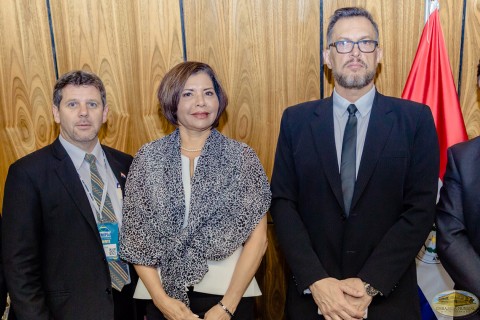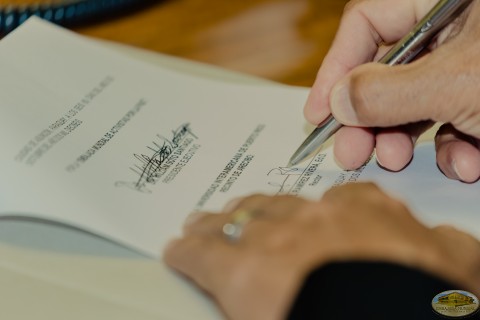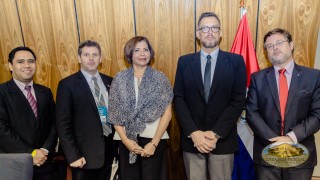Internationalization of education: strategies for an integral and comprehensive formation
The Educational Session of the Peace Integration Summit CUMIPAZ 2016, was made up of four work tables, which were developed at the Legislative Palace in Paraguay.
The objective of this session was to promote the internationalization of the integral education of the human being, founded on principles, values, respect for human rights and Mother Earth, through strategies that strengthen the development of a culture of peace in society.
Each table created a collaborative document of proposals regarding educational policies to improve academic management, teaching practice and civic education for sustainability, progress and peace.
The formative process within the educational system
The keynote speeches on “Universal principles and values in the formative process within the educational system” were presented in plenary in the Bicameral Chamber of the Congress.
The four subtopics were:
- Educational policies based on values, by Freddy Peñafiel, Vice Minister of Education in Ecuador.
- Inter-cultural Educational Model, by Hector Alejandro Canto Mejia, Technical Deputy Minister of Education from Guatemala.
- Promotion of environmental values for a peaceful coexistence of the human being with Mother Earth, by Senator of the Multinational Legislative Assembly of Bolivia, Ciro Felipe Zabala Candeo.
A holistic education

Deans Syndia A. Nazario from the United States, Danysabel Caballero from Panama and Maria Pareja from Bolivia spoke on the topic “The role of universities in the promotion of peace before the challenges of the XXI century.”
The second work table created proposals aimed at the formation of students through an education that impulses actions of peace and opportunities of progress for all the member of the educational community; education as an essential condition for a transformational change.
They also propose to include international organizations and media for the design and implementation of educational policies that emphasize on a sustainable development, and a holistic system for the education of the human being in their soul, spirit and body; encouraging reconciliation, coexistence and social compromise.
Development of a culture of peace

“Peace as a central topic in university management” was the topic of the third work table, where Carlos Garay Ugarte, representative of the Latin America Tuning Project of Paraguay, participated as the moderator.
The lecturers of the third work table were:
- Professor Santiago Castella from Spain, with the topic “Education in Human Rights as a foundation in the formation of values in Higher Education”.
- Dean Antionio Kiernyezny from Paraguay, with the topic “The contribution of university extension on addressing social challenges”.
- Executive secretary Vielka Jaramillo from Panama, spoke on the topic: “Solidary internationalization of Higher Education in the pursuit of improving educational quality”.
- Science consultant, Sergio Duarte, participated with the topic “Investigation and innovation as strategic tools for the development of a peaceful society”.
The proposal was based on the solidary internationalization of higher education that allows us to reach the development of a culture of peace through university extension activities, real and sustainable practices.
The transforming power of education
Felisa Liss, lecturer and consultant of the International Leadership Institute and from the Ministry of Education from Israel, presented the topic: “Student leadership as a transformer of social reality”.
“The necessity of construction an organizational culture to make possible the transforming power of Higher Education”, was the topic given by Rafael Ramirez Rivera, rector of the Inter American University of Puerto Rico, campus in Arecibo, Puerto Rico.
Ignacio Hernaiz, director of the Iberoamerican Institute of Human Rights Education for Mercosur, OEI of Uruguay, spoke on “Inclusive education before the requirements of the XXI century”.
The lecturers proposed:
- Rescue culture identity, as well as the respect towards ancestral knowledge, the environment and customs.
- Eliminate discrimination and violence,
- Promote historic memory of social events to identify failures and prevent repetition
- Work towards the construction of an education for peace during the process of education.



